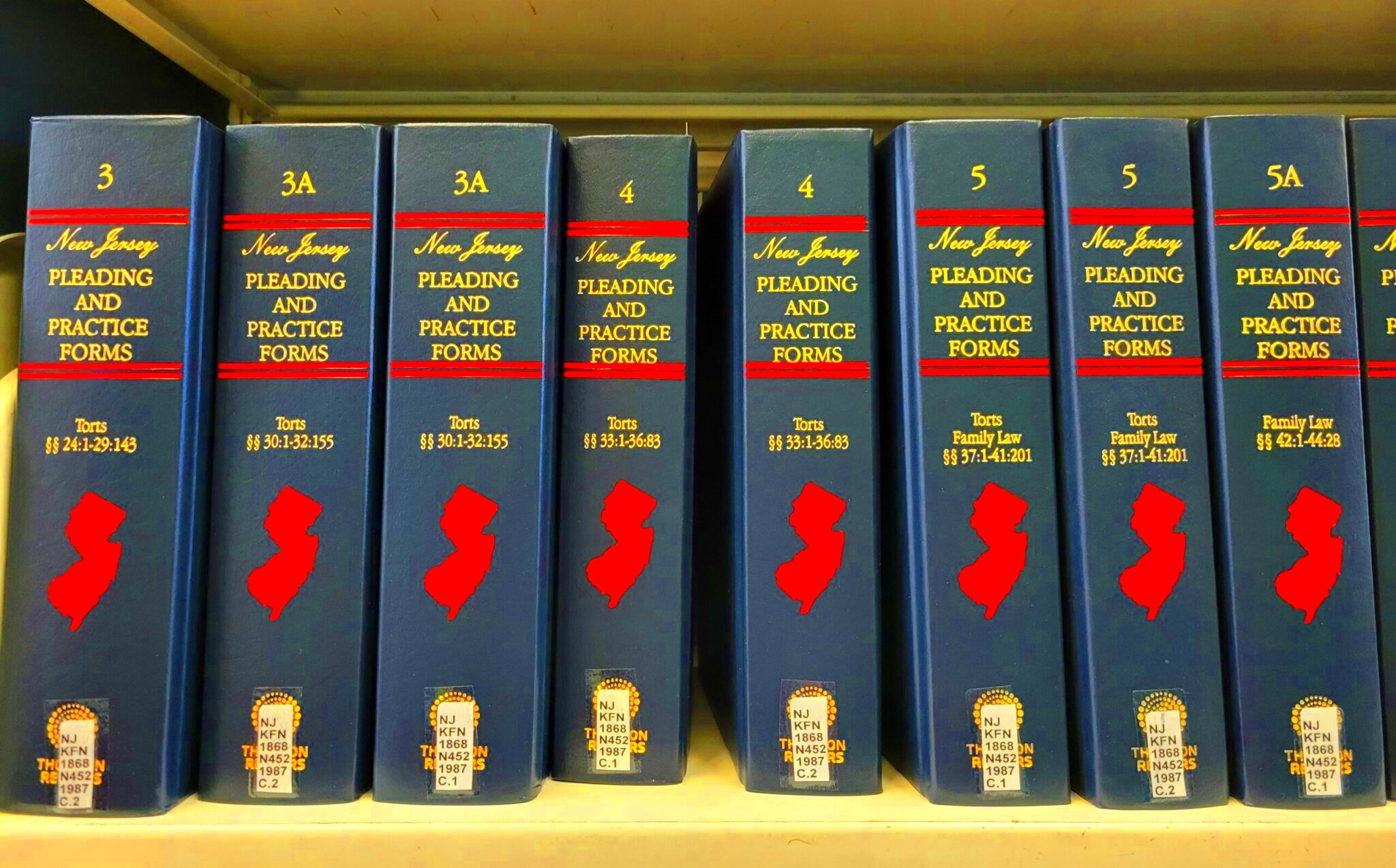Exploring Common Law in New Jersey and How It Affects Legal Cases
Common law is an essential part of New Jersey’s legal framework. It refers to laws that have developed over time through court decisions rather than through statutes enacted by the legislature. This system allows for flexibility and adaptability as it evolves with society’s needs. In this blog post, we will explore the history, key principles, and application of common law in New Jersey, helping you understand its significance in legal cases.
History of Common Law in New Jersey

The history of common law in New Jersey is rich and complex. When the state was established, it inherited English common law traditions, which laid the foundation for its legal system. Over time, as the state developed, local courts began to interpret and modify these laws based on the specific needs of New Jersey residents. Here are some key milestones in the history of common law in New Jersey:
- Colonial Period: New Jersey adopted English common law upon its establishment in the 17th century.
- Post-Independence: After gaining independence, New Jersey continued to rely on common law while adapting it to American values.
- 20th Century Reforms: Significant legal reforms occurred in the 20th century, further shaping common law to address modern issues.
This historical evolution has made common law an integral part of New Jersey’s identity, affecting how justice is administered today.
Key Principles of Common Law
Common law is based on several key principles that guide its application in legal cases. Understanding these principles is crucial for anyone navigating the legal system. Here are the core concepts:
- Precedent: Courts rely on previous decisions (precedents) to guide their rulings in similar cases. This promotes consistency and predictability in the law.
- Judicial Interpretation: Judges play a significant role in interpreting laws and applying them to specific cases, which can lead to the development of new legal standards.
- Flexibility: Unlike statutory law, common law can adapt to changing social norms and values, making it responsive to contemporary issues.
- Equity: Common law includes principles of equity, which allow courts to consider fairness and justice when making decisions.
These principles not only help maintain order in the legal system but also ensure that justice is served fairly and effectively.
How Common Law is Applied in Legal Cases
Common law plays a vital role in shaping how legal cases are decided in New Jersey. Courts rely on established precedents to guide their decisions, ensuring consistency and fairness. Here’s how common law is typically applied:
- Case Law Reference: When a case is brought to court, judges look at previous rulings in similar cases. This helps them determine the appropriate legal standards to apply.
- Judicial Discretion: Judges often have the discretion to interpret laws based on the specific circumstances of each case. This can lead to different outcomes even in similar cases.
- Legal Reasoning: Courts use logical reasoning to explain their decisions, ensuring that the reasoning is grounded in established legal principles and past case law.
- Consistency and Fairness: By following precedents, common law helps maintain a level of consistency in the legal system, which is crucial for fairness.
Overall, the application of common law in legal cases allows for a flexible yet stable framework that adapts to the needs of society while upholding justice.
Differences Between Common Law and Statutory Law
Understanding the distinction between common law and statutory law is crucial for anyone engaging with the legal system. Here are some key differences:
| Aspect | Common Law | Statutory Law |
|---|---|---|
| Source | Developed through court decisions and precedents. | Created by legislative bodies through statutes. |
| Flexibility | Adaptable to changing social values and circumstances. | More rigid; changes require formal legislative processes. |
| Application | Judges interpret and apply laws based on previous rulings. | Judges apply laws as they are written in statutes. |
| Focus | Focuses on individual cases and legal principles. | Focuses on broader policy goals and societal standards. |
These differences highlight the unique roles both common law and statutory law play in shaping New Jersey’s legal landscape.
Impact of Common Law on Personal Injury Cases
Common law significantly influences personal injury cases in New Jersey. Here’s how:
- Negligence Standard: Most personal injury cases hinge on the concept of negligence, which is rooted in common law. Plaintiffs must prove that the defendant failed to act as a reasonable person would, leading to injury.
- Precedent Setting: Courts often rely on previous personal injury cases to guide their decisions. This can impact damages awarded and how liability is assessed.
- Jury Decisions: Common law allows for jury involvement in determining damages, which can lead to varying outcomes based on juries’ interpretations of fairness and justice.
- Liability Types: Common law distinguishes between different types of liability, such as strict liability, which can affect how cases are argued and resolved.
Overall, common law provides a framework that allows for the evolution of personal injury law, helping to ensure that victims receive fair treatment while also holding parties accountable for their actions.
Common Law and Contract Disputes
Contract disputes often arise when one party believes the other has failed to uphold their end of an agreement. In New Jersey, common law plays a significant role in resolving these disputes. Here’s how common law affects contract cases:
- Formation of Contracts: Common law outlines the essential elements for forming a valid contract, which include offer, acceptance, consideration, and mutual consent.
- Interpretation of Terms: Courts use common law principles to interpret contract terms, especially when the language is vague or ambiguous. This helps determine the parties’ intentions.
- Performance Standards: Common law establishes standards for how contracts should be performed. If one party fails to meet these standards, they may be found in breach of contract.
- Damages and Remedies: In the event of a breach, common law allows courts to determine appropriate damages or remedies, which may include monetary compensation or specific performance.
Overall, common law provides a framework for understanding and resolving contract disputes, helping parties achieve fair outcomes while maintaining the integrity of their agreements.
Future of Common Law in New Jersey
The future of common law in New Jersey is a topic of much discussion among legal experts. As society evolves, so too must the laws that govern it. Here are some potential developments to watch for:
- Technological Changes: With the rise of technology, common law may need to adapt to new issues such as digital contracts and online transactions.
- Social Justice Movements: Increasing focus on social justice may influence common law interpretations, leading to more equitable outcomes in cases involving discrimination or harm.
- Legislative Updates: While common law evolves through court decisions, legislative bodies may enact new laws that influence how common law is applied.
- Judicial Innovations: Courts may introduce new legal standards or practices to address emerging legal challenges, ensuring that common law remains relevant.
By staying informed about these trends, legal professionals and the public can better understand how common law will continue to shape New Jersey’s legal landscape.
Frequently Asked Questions
Here are some common questions about common law in New Jersey and their answers:
- What is common law? Common law is a legal system based on court decisions and precedents rather than written statutes.
- How does common law differ from statutory law? Common law evolves through judicial decisions, while statutory law is created by legislatures and is more rigid.
- Can common law change? Yes, common law can change as courts interpret laws and adapt to new societal needs and values.
- How does common law affect personal injury cases? Common law provides the framework for negligence and liability standards in personal injury cases.
- What role do judges play in common law? Judges interpret and apply common law principles, ensuring that decisions align with established precedents.
Understanding these aspects of common law can help individuals navigate legal situations more effectively.
Conclusion
Common law is a foundational element of New Jersey’s legal system, influencing everything from contract disputes to personal injury cases. Its principles, such as reliance on precedents and judicial interpretation, ensure that the law remains adaptable and relevant to changing societal norms. As we look toward the future, it is clear that common law will continue to evolve, influenced by technological advancements and social justice movements. Understanding these dynamics is essential for anyone engaged with the legal system, as it empowers individuals to navigate their rights and responsibilities effectively.


